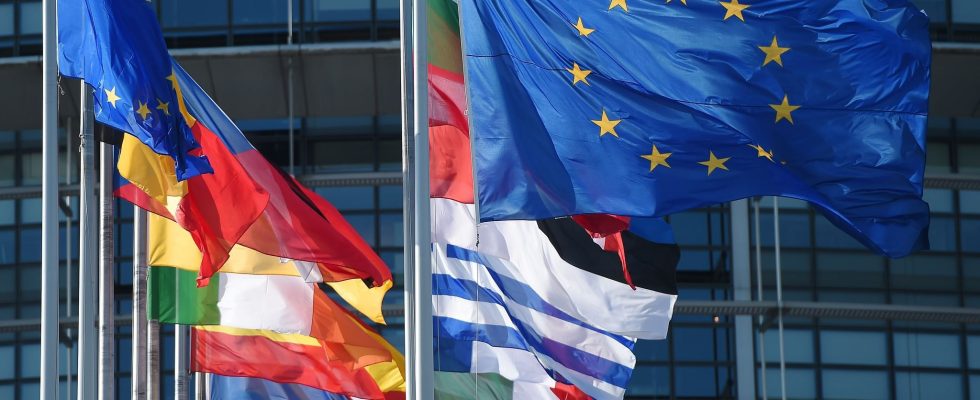The deadline is fast approaching. The next European elections will take place from June 6 to 9 in all Member States of the Union. In France, the date has been set for Sunday June 9, unlike Saint-Pierre-et-Miquelon, Saint-Barthélemy, Saint-Martin, Guadeloupe, Martinique, Guyana and French Polynesia where the vote will be held on June 8.
How does the voting take place?
The voting method for the European elections is that of direct universal suffrage in one round. The candidates presented are elected for five years according to the rules of proportional representation by list ballot with the highest average – a principle common to all member states.
Thus, lists, which are national, obtaining more than 5% of the votes win a number of seats proportional to their number of votes. All lists are made up of 81 candidates – the total number of French MEPs in Parliament – i.e. two more seats than in 2019. This is explained by the vote in the European Parliament last September in favor of a passage from 705 to 720 of the number of elected officials. France, like Spain and the Netherlands, thus obtained two additional seats.
During the previous European election, on May 26, 2019, 34 lists were presented in France. The headliners were rare: the party leaders preferred to preserve their national mandates. For good reason, the accumulation of a mandate as an MEP with a national parliamentary mandate or the head of a local executive (mayor, president of a departmental or regional council) was prohibited for the first time by the law, which came into force in 2018 .
Who can vote?
In France, this vote concerns national but also European citizens residing in France. This particularity, also valid for municipal elections, dates from 1992, with the entry into force of the Maastricht Treaty.
In addition, the voter must be of legal age and registered on the electoral roll, the deadline for registering online being May 1. Latecomers will have until Friday May 3 but will have to physically go to their town hall counter.
How to proceed with a “dematerialized” proxy request?
This approach has been available online since April 12. On paper, the possibility of making a request for a dematerialized power of attorney, and therefore without going to the police station or gendarmerie, was supposed to simplify and streamline the process. For the government, this tool makes it possible to respond to the recurring high rate of abstention during the European elections which could taint the legitimacy of the result. In 2019, in France, almost 50% of voters did not vote, according to INSEE.
However. Firstly, the process is only accessible to holders of the new identity card, in bank card format, issued since 2021. The latter is linked to the “France Idêtes” application, a government service allowing you to prove your identity. online identity. But for those who are not so lucky, nothing changes: go to the police station or the gendarmerie.
Furthermore, and as its name does not indicate, the dematerialized power of attorney does not spare the interested party from a visit to the town hall. Indeed, once connected to the “France Idêtes” application, the user must make a request for certification of their digital identity. Equipped with proof of identity and a QR code, provided by the application, the interested party must therefore go to the town hall of their choice to prove that they are the holder of the card linked to “France Identify”.
It is only once the certification request has been validated that the user can complete the procedure online on the maprocuration.gouv.fr website. If the dematerialized proxy is tested as an experiment during the European elections, the government wishes to extend this mechanism to the next elections: the municipal elections of 2026 then the presidential election of 2027.
